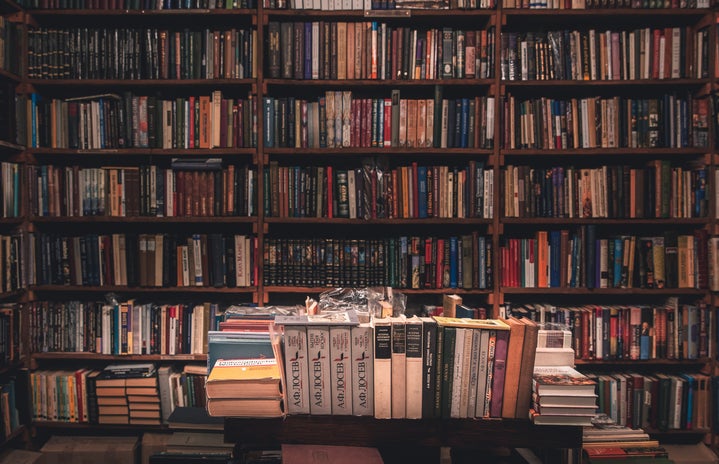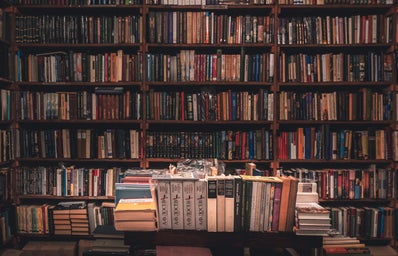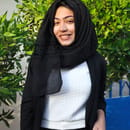What is a hero? Who is a ‘main character’? What does a politician look like? You may be thinking of a broad-chested man with a cape cascading down his back, or an overweight elderly man with all the money he could possibly need. And yet, why is it that when I think “hero”, I am reminded of the dystopian novels I read when I was a preteen? Why is it that when I think of a hero, I think of Katniss Everdeen, the ‘Girl on Fire’ from Suzanne Collins Hunger Games trilogy? Or when I think of a main character, I think of Cia Vale from The Testing trilogy written by Joelle Charbonneau? Why is it that when I think of politicians, I see Jeannie Matthews, head of the Erudite faction in Veronica Roth’s exciting Divergent trilogy? I could attribute this to good modern-day parenting. I could say my mother and father instilled a feminist belief system that allowed me to challenge what I think a hero, a main character, or a politician to be. But while I recognize their successes in raising me, I feel the need to acknowledge that these novels taught me a lot more about the feminist movement than society and my parents ever could.
Maybe it was because these novels were written in first person, and I could find myself completely immersed into the universe that I was reading about. Or maybe it was because, for the first time, I was reading stories told from the perspective of a woman, granting me access to her thought process. I look back on myself in seventh grade, watching every girl in my class fashion their hair into a side braid to resemble Katniss Everdeen. That is when I realized that for the first time, many of us finally saw ourselves represented in novels. Not just as a love interest, or a damsel in distress, but as a woman. A woman who tied her hair up in a braid not to look pretty, but instead to keep her vision clear while fighting to the death. And while I am not about to join a rebellion faction or save the world from the evils of President Snow, Dr. Barnes or any other supervillain, this seemingly unimportant detail of Katniss’ braid, or Malencia Vale’s tight knot before inciting a rebellion made me realize a feature that is viewed as feminine is not always meant to be ornamental.
It allowed me to go against society’s agenda of what I should look like and how I should behave. Being provided with such a small and seemingly unimportant detail allowed for an entire generation of women to look at themselves in a different way, to recognize the princesses and Barbies that we were raised with should not and will not reflect the women who they are to grow into.
These novels not only influenced women, but all young adults. They showed that the weight of the world fell upon the shoulders of the new generation. The hopeful ending of The Hunger Games came from Katniss Everdeen and her band of child victors. The end of a corrupt testing where students were put through tests that if failed resulted in their deaths was attributed to a young girl named Malencia Vale. The prevention of mass slaughter of the abnegation faction was aided by Tris and Four in the Divergent trilogy who fought against the Erudites and their murderous attempts. All of these young people instigated change and while I didn’t realize this as a pre-teen, now I get to watch the way that this influenced the children I grew up with. When I login to Instagram, I see my peers banding together to call for change, provide resources, discuss the difficult topics, and I wonder if, like me, they watched their lives be shaped by the ideas that were taught through these novels. I wonder if maybe reading and watching the way young people were called on to make the difference and make the change in these novels allowed for youth to recognize that change can come from us as well.
When thinking back on these novels and why they were all targeted towards young adults, it allows me to realize something. These novels targeted the younger me. The younger version of me who did not understand the stereotypes and difficulties that come with developing into a woman and the expectations that come along with it. These novels allowed for me to see these stereotypes and reject them, and to never conform to what is expected of me. These novels taught me at 13 to challenge what I thought I could become. And while I have grown out of wanting to be Prime Minister, it still stands that when I– a young girl growing up in a patriarchal world– thought of a politician… I thought of myself. Despite seeing the male dominated culture of politics, I still knew the capabilities I held to be a leader. I think this passion came from seeing President Coin in Mockingjay lead a district and ensure its prosperity, I read Jeanine Matthews leading an Erudite faction in Divergent, and President Collindar in The Testing dominating over the entire commonwealth. This is what shaped my views and allowed for them to differ from society’s expectations. Because in contrast to today, where the President of the United States has expressed his overtly misogynistic viewpoint over what makes a good leader, and what makes a good woman, I read in these novels that women are equally as equipped to be leaders as men, and that they succeed at it.
These novels all featured a dystopia. Dystopias come with hardships, difficulties, mutations of the land, war and corruption. A dystopia like the ones in these books typically arrive after a near apocalyptic end. And I find it empowering, that all of these dystopias show women as something that appear stronger as they approach from the rubble and ruin. I watch the way a story erupts based on the action of a teenage girl, or the way an entire city can be ruled by a woman in a position of power. I have read and thought about it in every conceivable way, and it makes sense that a world dominated by men should only progress into the influence of gender equality, where the idea of a woman on the “throne” is not seen as a sign of weakness but of prosperity. These dystopian thriller novels, even though I only discussed a distinct few, not only demonstrate the necessity for female representation in books but show the very way these novels changed and shaped me into the woman I am today.
As I sit here at my desk thinking about what my future holds, I am certain that it can only hold great things, for I am a woman. And just like the women in the novels I grew up with, I am capable of creating momentous change in the world around me.



